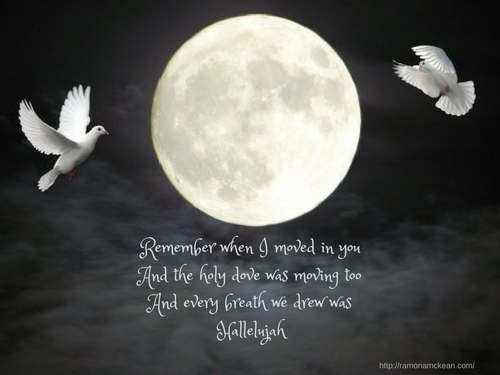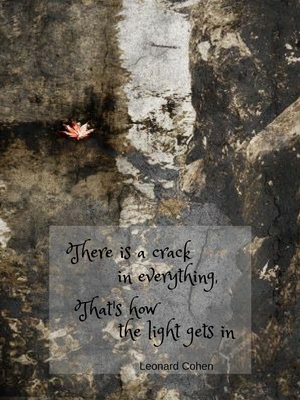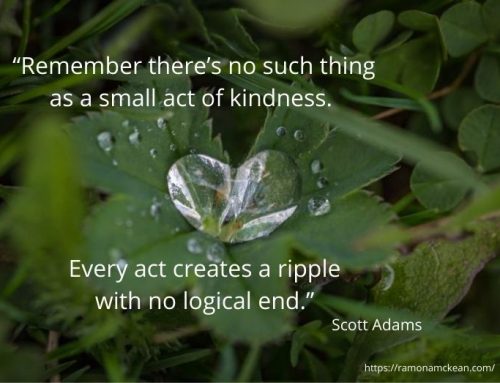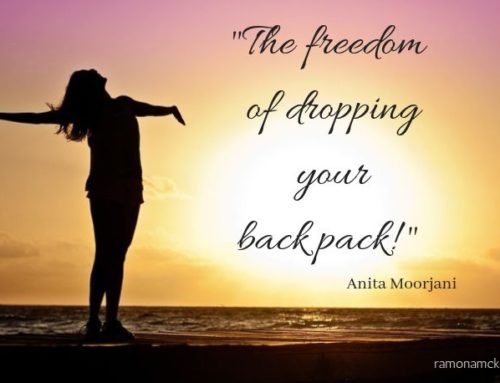
In my previous blog, Music to Build Bridges, I shared a message about man-made problems that divide the human race and cause needless suffering. Problems include such things as non-communication, prejudice, greed, racism, sexism, and so on. Human problems are largely about disconnection, first from ourselves and then from others.
How is music able to “bridge differences”; that is, create connection? First, by providing an inner bridge that gets us out of our heads and into our hearts.
(Music is processed by the heart, not the mind.) The heart is where we feel our feelings, the thing that makes us human. No person anywhere, no matter the culture, race, creed, etc., is immune to sorrow or joy, hope or fear, kindness or cruelty.
When we are consciously connected with our feelings, especially the kinder ones, we’re more able to understand the feelings of other people, even people seemingly very different from ourselves.

With my Music to Build Bridges blogs, my plan is to share popular music that goes straight to the heart, and the deeper, the better. The popular music will be from different cultures and countries. (I am open to your suggestions, please!) Last time I shared the beautiful Japanese song “Ue O Muite Arukou,” known as “Sukiyaki.” Though sung in Japanese, this song made it to #1 in Canada and the USA a few decades ago, revealing that the universal language of the heart doesn’t have to use spoken words that we understand.
Hallelujah
This time I’ve chosen a song written and recorded in the early 1980s by Canada’s Leonard Cohen. Since its release in 1984, Hallelujah has moved millions of listeners and inspired 100s of cover versions. A tidal wave of tear drops–might this help describe the power of this heavenly piece of music?
To me, Hallelujah stops time. It lifts and transports listeners, not away from, but rather into their heart of hearts, where the deepest of feelings reside, including those of love and bewildered loss.
Yes, love and loss has been a theme, a universal theme, since humankind came to be. King or pauper, it matters not.
Hymn to a Broken Heart
The song is about a guy who’s passionately loved a woman who has awakened his heart and soul. He experiences their love as sacred, and their love-making as an act of divine reverence.

The intensity of the man’s emotion is so great that it seems to leave him powerless, perhaps like King David who becomes enamored with Bathsheba, another man’s wife (2 Samuel 11). “You saw her bathing on the roof/Her beauty and the moonlight overthrew ya.” King David acts in a less than noble way and pays a great price. The man in Cohen’s song is compared to this “baffled king composing Hallelujah.” (King David wrote many of the Old Testament Psalms—that is, songs to God—including the 23rd, “The Lord is my shepherd, I shall not want…”)
The man in Cohen’s song is also compared to Samson (the strongest man in the Bible), who foolishly allows himself to be outwitted by Delilah. Samson reveals the secret that his hair is the source of his immense power (Judges 16), whereupon Delilah betrays him, rendering him powerless, at least for a time. “…she broke your throne and she cut your hair/And from your lips she drew the Hallelujah.”

In Cohen’s song, the woman, for her own reasons, leaves the guy, which breaks his heart and leaves him in a state of bewildered grief.
One must be Broken to become Whole
The essence of Hallelujah is the broken heart. A broken-hearted person can choose to open and feel or shut down and become hardened. Does the guy in this song open up and feel? Yes. (Many listeners of this song find themselves doing the same; that’s why the song resonates with them.)
The opening up suggests opening to the truth, having illusion taken away, hence being liberated, albeit painfully.
An “average Joe,” the man seems to need this jolting experience to wake up. With his heart gaping open comes the thanks, the “Hallelujah.” The thanks is for the love he once had. He is able now to learn more deeply about himself and about love.
In experiencing his vulnerability, he can have a greater appreciation for his strength, one not based on his ego self but on his spiritual Self.
Also, by consciously feeling his feelings and not indulging bitterness, he will likely be a wiser, kinder person. Once broken, he has the opportunity to become whole.
Singer of the Song
As mentioned earlier, there are 100s of cover versions of Cohen’s Hallelujah. Among the great versions are those by : John Cale (used in the movie “Shrek”); Jeff Buckley (brought the song to world attention 10 years after Cohen recorded it himself); Rufus Wainwright (used in the soundtrack for Shrek). My personal favourite is Canada’s KD Lang, who has been a winner of multiple Juno and Grammy Awards.
Nothing short of angelic genius emerges when these two musicians–KD and Cohen–merge their phenomenal talent. Here is KD at Canada’s 2005 Juno Awards. When your soul becomes your voice…
When asked to perform his own song at the Vancouver 2010 Winter Olympics, Leonard Cohen deferred to KD because the song was “hers” now. For that version, please click here. In his view, KD (Kathryn Dawn Lang) performs the song to “its ultimate blissful state of perfection.”
In 2006, when Leonard Cohen was inducted into the Canadian Songwriters Hall of Fame, KD sang Hallelujah to honour him. At the end of her performance, she left the stage to greet him in person. To see this performance and their beautiful meeting, visit here.
In Closing
I am curious. What effect does Leonard Cohen’s Hallelujah have on you? What specific songs touch your heart and soul? What do you think of my view that: On a heart level, music can help bridge differences between people who may seem radically different from one another?
If you’d care to share your reflections in the comments section below, you may well make my day! And if you have suggestions of songs for me to include in upcoming blogs (songs from different countries, in different languages, that reach the deepest of places in the heart), please do tell!
Namaste.







Yes, KD Lang singing this song touches the soul. Just wanted to raise my arms and touch the heavens! I was at the Burnaby Roots festival when she performed with the moon behind her. Everyone present was with her!! Another song that reaches deep within is “Take It To The Limit” by the Eagles.
I love your description, Louise: “Just wanted to raise my arms and touch the heavens!” How wonderful to have KD singing in the moonlight in Burnaby. Sounds magical. 🙂 And thanks for sharing the Eagles great song, “Take it to the Limit.”
Another beautiful, interesting and inspiring post Ramona. I completely agree with you that on a heart level, music can help bridge the differences between people who may seem radically different from one another. Songs that touch my heart and soul are:
In The Arms Of The Angel by Sarah Mclachlan
J. S. Bach. Harpsichord Concerto in f minor. BWV 1056 (II y III) (Larghetto & Allegro)
Love Me Now by John Legend
The English Patient Soundtrack by Gabriel Yared
The Mission Soundtrack by Ennio Morricone
Watermark by Enya
The Lady of Shallot by Loreena McKennitt
Love Song for a Vampire by Annie Lennox
Don’t Give Up by Peter Gabriel
J.S.Bach: Goldberg Variations BWV 998 1. Aria Andante espressivo
Calling All Angels by Jane Siberry and kd lang
Trois Gymnopédies by Erik Satie
Song To The Siren by This Mortal Coil
Running Up That Hill by Kate Bush
How Soon Is Now? by The Smiths
To name a few… 🙂
Wow, Clarke, thank you for sharing some extra special music in your life. Some I am not familiar with, but I shall enjoy checking them out. Others, I really like too. Tennyson’s “The Lady of Shallot” was a winner with the high school English students I used to teach. I had boys thank me and confide that they “loved” both the poem and Loreena McKennitt’s musical version of it!
Hello Ramona !
I noticed one of your sentense about KD Lang “…her soul becomes her voice”….is it some words coming from the Bible? LOL
I am a French speaking person, and I have many deeply meaningfull French songs in my mind. But above all these French songs I know, Anne Murray and her “You needed me” is the song that leaves me, every time, shaken. It is my best of all. What to say about this mysterious pronom she used: “You”… We can not see who or what it is related to… ? Is this a man, a woman, a mother, a son, a friend, a God, a passion, an animal???? We cannot even say if she loves that “You”… That “you” who even bought back her lost soul…etc.
Along the path you are pursuing, if you have the chance to find some writings done by a man called Bertrand Russell, philosopher, mathematician, politician, prisoner, Nobel winner (literature) you could find some help dealing with universal thoughts…
Remige 2006
NB I made a bet to myself: You already know Russell…
Remige2006: “…her soul becomes her voice” is actually from a comment left on a YouTube KD Lang video. I remembered it as it was so lovely. (Don’t know if I could find the comment now.) I don’t know if it’s in the Bible.
I’ve just re-listened to Anne Murray’s “You Needed Me” and see what you mean. Who, exactly, is that “you” she refers to, someone who’s made all the difference in the world in her life? A beautiful song.
You are right, I am familiar with Bertrand Russell! I haven’t, however, read anything by him for many years. I shall look him up again, thanks. Is there a piece of his writing that you’d particularly recommend? I’d appreciate any suggestions.
Also, please share with me some French songs that in your opinion really touch people’s souls. I’d really appreciate that too! Are you from Quebec or France?
Thanks for such a friendly, “newsy” comment! 🙂 I hope you visit my site again and write me back.
Hello Ramona
I was teasing you when I asked if the sentence “Her soul became her voice” seen in your comments about K.D. Lang, was from the Bible, since you seems to like to quote it… I am the one who wrote this on You Tube, after I heard K”D” Lang singing “Crying” ( Roy Orbison’s achievement) on an Australian TV show. I had completely forgotten my reply, when a notice told me you had commented it on You Tube. A laugh merge in my mind, seeing myself, me, the deeply atheist, who speaks about soul…Any way, you appreciated the quote, said it, and used it. I am as proud as a huge bird with its huge feathers spread like sunshine…My words are used by an English teacher!
Notwithstanding ( my God, what a word for a french guy from Québec!) here we are exchanging about songs and writers…There is an old song in french from a great singer Jean Ferra who wrote,apparently, from his bed in an hospital after surviving a terrible car accident: “Que c’est beau la vie” ( Life is so nice…). Do you have any idea how someone could feel after a car accident? ( Teasing again).
Another unusual song, but famous, is “L’enfant des cathédrales” (Cathedral’s boy). A young boy,13 years old, is attracted by cathedrals…Sung by Gérard Le Normand.
A book, or two, about Bertrand Russell that are directly connected to your goal of avoiding conflicts is ” Political ideals” and “Pacifism and Revolution.” These were written while the First World War was ravaging humanity…I have not read the second one yet though.
I wish, Ramona, that you will be able to maintain all the energy it takes to succeed in order to have men be less warriors and more musicians…
Remige….
So you wrote the soul becoming her voice comment on YouTube! Yes, I recall now. That particular video shows KD’s talent in no uncertain terms. Young (31 years old in 1993), put on the spot with no rehearsal time with an unfamiliar orchestra, and she comes out with one of the most beautiful, not-overdone emotional performances of “Crying.”
” target=”_blank”>
Thank you for the suggestions for French songs. My next blog will likely be about a French singer and song, which I’ll not identify at this time. I have listened to the two songs you mentioned and really like “L’Enfant des Cathédrales.” I must say that you reveal yourself as one very soulful “atheist,” Denis! I read the lyrics translated in google. From my limited French, I think they must be terribly lacking.
Yes, I shall look up Bertrand Russell again after many years since reading anything by/about him. You wrote: “I wish, Ramona, that you will be able to maintain all the energy it takes to succeed in order to have men be less warriors and more musicians…” Support from people like you (I mean that) is what helps me to feel encouraged to write. It’s a little too easy at times to feel discouraged, that my blogs are not read by many, etc., etc. I would be so happy if you’d like to share any links from my website on social media or otherwise.
Thank you for all your sharing–music, books, light-heartedness, etc. How splendid that the “huge feathers” of the “huge bird” are “spread like sunshine”! (Did you choose the name Rémige for flight feathers?)
Hello Ramona
So you will present a french song on your blog! I am very excited to see your choice… I am sure that when you have tried to translate, via Google, the french song I suggested, you must have end up with something horrible… This machine “google translate” doesn’t how how to translate a sentence from one language to another (according to me). But I must admit that it is a part, a link, of all that it takes to understand each other… A link like your project that is added to each other attempt, known and unknown.
I am aware of all the help you need. I am sure that nobody will blame you if you ever feel discouraged. Those moments are impossible to avoid. When it happens, remember Og Mandino and his famous line from the book “The greatest miracle”: “ONE more mile…..( or kilometer, depending on where you are when it occurs, LOL).”
Remige is a nick name coming from my love for birds. It is their longest feathers. It is probable that Shakespeare needed a remige to do his writing… I heard that his friend was doing on his feathers some very fine sharpening , a guy named Wilkinson…
Now, let’s wait for this french song….(after this one, you could analyse Caruso sung by Pavaroti….a song that provokes bubbles in your blood.)
Denis
NB I will be careful to watch for any opportunity to spread your thinking.
Hi Denis,
“Google Translate” is helpful to get the gist/general idea of something. For that I am grateful. Having said that, its translations are often downright nonsensical and confusing. But then, what can one expect from what you refer to as a “machine”? Considering idioms, nuances and connotative meaning, literal translation often does not and simply cannot work, whether by human or machine.
This underscores a basic communication problem that people in our world face: how to understand each other!
It’s too easy for people to misunderstand then to react negatively, as though their interpretation of what the other said was actually true. Maybe they were saying pretty much the same thing to begin with. Negativity is so unnecessary. One of Stephen Covey’s 7 habits, which is hard for me to practice at all times is: “Seek first to understand, then to be understood.”
Ah, here’s how the sweet power of music comes in! We humans need to let music touch our hearts and open our minds to one another!
Thanks again for a suggestion; I’ll listen to Pavarotti singing Caruso. I appreciate your support.
🙂 Ramona
Hi Ramona
Stephen Covey’s 7 habits. I have this book somewhere. After 30 years, or about, I should read it …for the first time….I even attended a class ( may be six or ten hours) about him. “Seek first to understand, then to be understood.”
About Caruso sung by Pavarotti…there is so much magic in this song. I don’t understand Italian but I can’t resist the idea of making my own words when I listen to it. According to my feelings, words change,,,never the same.
What do you thing about Bob Dylan and his Nobel’s prize in literature?
Bye!
I’d never really listened to the song Caruso before, Denis, so thanks for the mention. I am Italian on my father’s side and remember, as a child, my father playing old records of Enrico Caruso, the great tenor from Naples, Italy (1873-1921). The song called Caruso, I’ve just learned, was written in 1986 by Lucio Dalla. He sings the song himself, truly powerful! I know Pavarotti is a fine singer, but I’ve not been able to connect with him much. Now, here is a tour de force version! Tell me what you think of this one for “making the blood bubble.”
[I wasn’t impressed with the selection of Bob Dylan for the Nobel Prize in literature. He thumbed his nose at the award. I wonder if it will be offered to someone else.]
Bonjour Ramona,
I have listened to Dalla’s Caruso. I had some goose bumps , which is different than “bubbles in your blood”…Goose bumps are related to some notions activated by one of our 5 sensorial imputs and I stay in touch with the reality. Bubbles are purely coming from an imaginary stimulus after being triggered by some senses. We are not sure if such a sensation applies to someone else other than me, “WE” meaning my psychiatrist and I. He promissed me to work on the matter during my next sessions….LOL
I can not make my mind up on this Nobel Prize regarding Dylan…Time will say. Maybe these specialists in Norway and Sweden forsee, finally, that attributing the prize to a song writer gives some importance to music and woring itself. Meanwhile, this should help you to reach your goal of spreading music in order to enlarge and facilitate communication. This capriole could be very rewarding…Like you said with this very accurate french expression, it is may be a “tour de force” that will provoque some amazement…I hope it will be fertile, fervent and festive, helping our fibre without being a fiction that ends up as a fiasco….LOL
NB All these words, in my last sentence, beginning with “F” are exactly the same in french and they have the same meaning in both languages….
Remige
You have quite the sense of humour, Remige! Thanks for differentiating between bubbles in the blood and goose bumps. Did you listen to Lara Fabian’s version of Caruso? Hers is the most potent one for me.
Not to diss Bob Dylan, but I think that if the Nobel committee wishes to present an award to a song writer, there are better choices. Two that come to mind happen to be Canadian: Leonard Cohen (who is absolutely tops in my books) and Gordon Lightfoot. Many of their song lyrics are pure poetry first.
Your “f’s” are formidable. Thanks for the frivolité. Ciao for now.
Bonjour Ramona,
I did effectively listen to Lara Fabian while she was performing “Caruso.” I agree with you, and actually she is now my new role model for when I am performing in the shower… What a waste…of water!
Gordon Lightfoot is my preferred Canadian. I adore his song in which he says “In a room where you do what you don’t confess.” And this other song about the ship sunk on Lake Superior, “The Wreck of the Edmund Fitzgerald”! ( A true story)….His voice is so guttural.
Ramona, have you heard of Debbie Allen, choregraher, actress, etc.? I was listening to VPR (Vermont Public radio) where she was talking. She is dedicated to music and communication and she is deeply involved.. If she could receive your book and read it, it would be for you a tour de force….
Have a nice day.
Denis
Marvellous, Denis! I’m happy you like Lara Fabian and you can save on your water bill too. 😉 Especially when matched with his music Lightfoot’s lyrics reflect a poet who captures sensitively the essence of what he’s writing about, whether it be about romance, history, paying tribute (commemorating) or whatever. (Somehow I don’t think “guttural” is the word you mean to describe his voice. Nut maybe it’s a bit like that now, considering his years and the throat surgery he underwent. What a trooper that guy is!) His song “Pussywillows, Cat-tails, Soft Winds and Roses” is so “sensuous”:
“Pussywillows, cat-tails, soft winds and roses/ Rainpools in the woodland, water to my knees/ Shivering, quivering, the warm breath of spring/ Pussywillows, cat-tails, soft winds and roses…” Mmm, I just love it!
Or “The Canadian Railroad Trilogy,” paying tribute to the men who built Canada’s transcontinental railroad, the CPR. The lyrics, tempo, everything contribute to his message. Sheer brilliance! Click here to see what I wrote about it in a previous post. 🙂
“For there was a time in this fair land when the railroad did not run
When the wild majestic mountains stood alone against the sun
Long before the white man and long before the wheel
When the green dark forest was too silent to be real…
And many are the dead men too silent to be real…”
No, I’ve not heard of Debbie Allen. I hope I can find her online. Thank you for that information.
You have a nice day too. 🙂
Ramona
Hello Ramona
Concerning Lightfoot’s song about the building of the Canadian railway, did you notice that he didn’t say a word regarding the Chinese workers, the coolies? Since he was commissioned to write this, he probably had his hands hand-cuffed…but you are right, we are here to expand music by putting aside politics….Sorry!
Denis
Yes, I did notice. I chose to “forgive” him, given how awesome the song is! Though the Chinese as a group suffered the worst of all the migrant workers, the job and conditions couldn’t have been all that great for any of them. At least, that’s how my thinking went in writing the blog. Thanks for the comment. Would you be willing to add your comment to that blog’s discussion too?
Dave Matthews Band “Crash” haunted my soul once upon a time. Just about any Bob Dylan song gets to me as well.
I don’t know the Dave Matthews Band’s “Crash” but will look it up. I like Bob Dylan too. Thanks for commenting.
Agree with you that music is a wonderful way of building bridges. The exception is in Muslim countries such as Saudi Arabia, Iran and Afghanistan where music is forbidden. Sigh…
I feel for those so deprived.
I absolutely love Leonard Cohen’s Hallelujah, Ramona. Thx so much for featuring this magnificent piece of music. And I totally agree with you. KD Lang’s version has been my favourite for years.
Thanks, Doreen.
I love this song and it constantly tugs at my heart strings. I cry every time. When a song can do this, it’s a great song. Thanks for sharing it. =)
It would take a “different” kind of person not to be touched by this music?
I love the song Hallelujah. There is something about that song that can reach and touch such a wide array of people. It doesn’t matter about religion or background. The message and feeling can be applied to a person’s own life, spirituality and emotions. I’ve never heard KD Lang’s version (and I’m in a situation right now where my computer volume needs to be on off. Will try to remember to look it up later.) I really don’t know much of her music. But I remember she has a classic duet with Roy Orbison that I always loved, so I’d love to hear her version of Hallelujah.
Music really is universal. I wish in America we were more open to playing music from other cultures on our radio. You have to seek other music out to get to know it.
Same in Canada. That’s why I really need help from people who know more world music for me to share. Anybody you can connect me with, perhaps?
I know the KD Lang version of Hallelujah which I believe is the version the X Factor winner (UK programme), Alexandra Burke sang eight years ago. She sang it so powerfully it made the hairs on my arm stand up. It cannot beat the original though.
This is an expressive song which you have broken down for us. I have not looked at the lyrics as deeply as this so thank you for opening my eyes.
Hi Phoenicia, thanks for your comment. It is my interpretation of the lyrics. Cohen uses religious imagery to capture a spiritual experience, the kind accessible to anyone, I think.
I remember this from Shrek! What a treat to hear K.D. Lang – it’s been a long time. Most of the time we listen to music but don’t really h-e-a-r the words so this is wonderful to have the opportunity to really understand this beautiful piece. Thank you!
Truly my pleasure, Marquita.
I love this song as well. I have not heard it for a long time and indeed sometimes it means so much to listen to the lyrics and try to feel each word. Thanks for a great post, Ramona
Feeling the words, oh yes. I like that.
I listen to a live version of Leonard Cohen’s Hallelujah almost every day. It appeals to me on so many levels. Its biblical references to the feeling of lost love, to its ending as redeeming a lost feeling of faith.
Thanks for sharing this with us.
Your listening to a version of this song everyday is such a testament to this song, William. I wonder which version you listen to. The picture I get from your description is someone brought to their knees with a sense of love lost, then lifted with an experience of faith returned. There is a beautiful mystery to the process.
So true Ramona. ‘In spite of our differences we all dance to the same beat!’ The song connects the correct cord! Thanks for sharing. I liked it!
We humans are quite a species. How wonderful it would be if people tried looking past their fear in order to see the “other” as much like themselves!
What a brilliant music piece this is. As a guitarist and awful musician myself, I try to find inspiration in the classics and soulful hymn music. Loved this, thanks for taking the time to research and create this piece.
You are most welcome, Gino. This piece of music is a modern “classic,” a kind of “soulful hymn,” plus it fits into the pop category too. I agree it’s brilliant. 🙂
Dear Ramona,
I have read your writing: Music to build bridges…in one breath. I can’t agree more about it. I love “Music is processed by the heart , not by the mind”; “Once broken, he has the opportunity to become whole.” In my words, once broken, twice whole ( I copy from ” Once bitten, twice shy”.)
Yes, great music gives you another pair of eyes to see the world, offers you a tender heart to feel other people and things around you. It transforms you in a gentle way just like the gentle spring rain moistens the vast field.
Many thanks for your spiritual music food.
Songhe, your response is beautiful, such a poet you are. (So many people in China have your kind of sensitivity, I have found.) Yes, “another pair of eyes” and music also gives us “another pair of ears to hear the world.” In China and everywhere else that has singing contests for novices, Cohen’s Hallelujah is sung frequently. You can’t access YouTube but you’ve heard the song, yes? 🙂